Going Nuts! Making Nut and Seed Butters
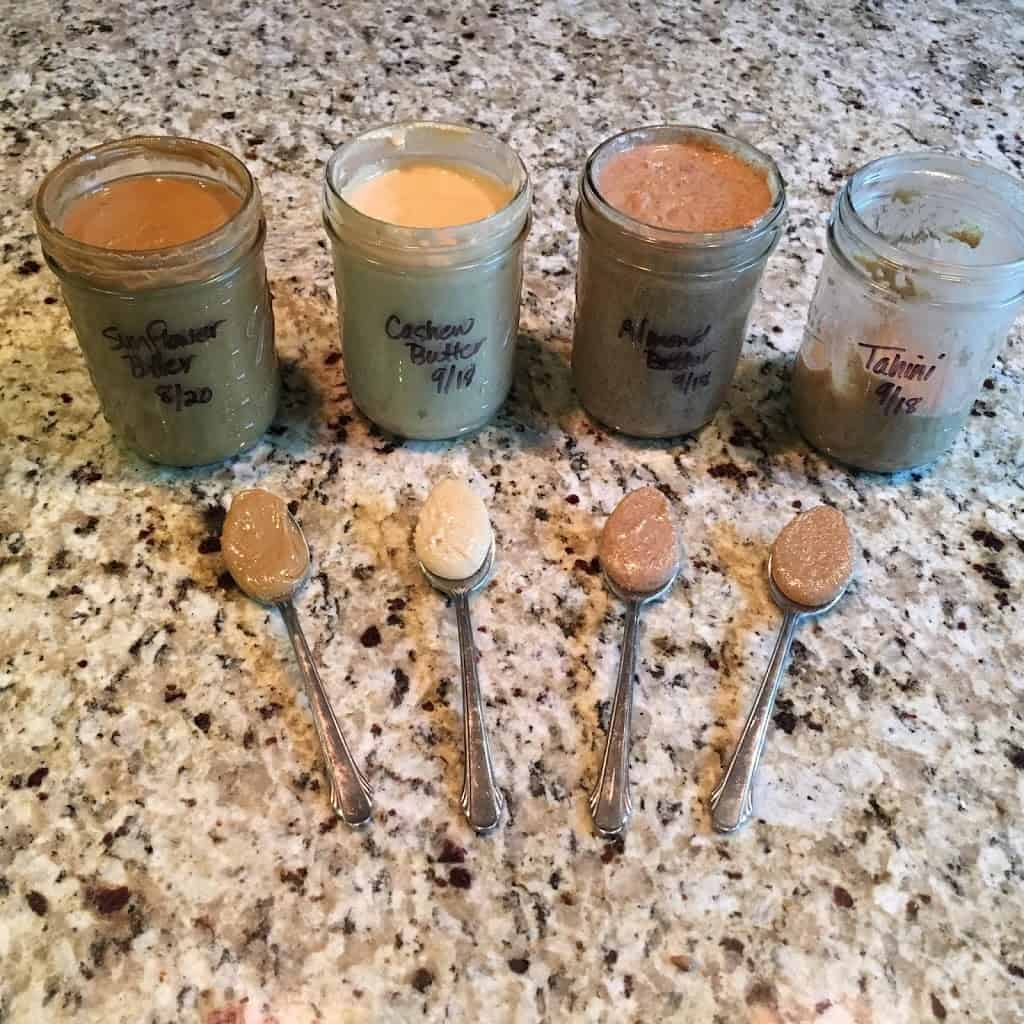
#VeganMoFo18 Day 19 – Going Nuts! Making Nut and Seed Butters
Nut and seed butters are really quite expensive, especially if you want something other than peanut butter. More and more stores now have nut butter grinders in their bulk areas, usually with peanut or almond options, but the end-product is still rather expensive. At least you know what’s in your nut butter (only nuts, no added oil, sugar, salt, etc.) and oftentimes you can fill your own jar. But did you know you can easily make your own nut and seed butters at home, for a fraction of the price?
Nut and seed butters are surprisingly easy to make. So simple, in fact, that I just don’t know why we’ve not been making it all along! Not only is it less expensive because you just buy nuts and seeds from the bulk bin, but it tastes so much better, fresher. Does it take fancy equipment? No, just a food processor. In fact, I prefer making nut and seed butters in my food processor over the Vitamix blender because it’s way easier to get all of the nut and seed butter out of the Cuisinart food processor bowl than the Vitamix container.
The process of making nut or seed butter is the same, no matter what you are using for your butter.
Step One – To Roast or Not to Roast, that is the Question
I prefer to make my nut and seed butters from raw nuts and seeds. I’ve done this because it makes the process easier (removes a step), but I’ve also recently learned that exposing high-fat, high-protein foods to dry-heat cooking, such as roasting nuts in the oven, creates advanced glycation end-products (AGEs) in those foods. AGEs can cause oxidative stress in your body and lead to inflammatory diseases such as heart disease, diabetes, and so forth. Here’s Michael Greger, MD’s take on this:
No Title
No Description
So do your body a favor and just use raw nuts and seeds for making your butters.
Step Two – It’s a Process!
Pour the nuts or seeds into your food processor fitted with the metal S-blade. Note, quart jar of nuts or seeds will yield a pint of butter. Put on the lid and turn the food processor on and just let it go.
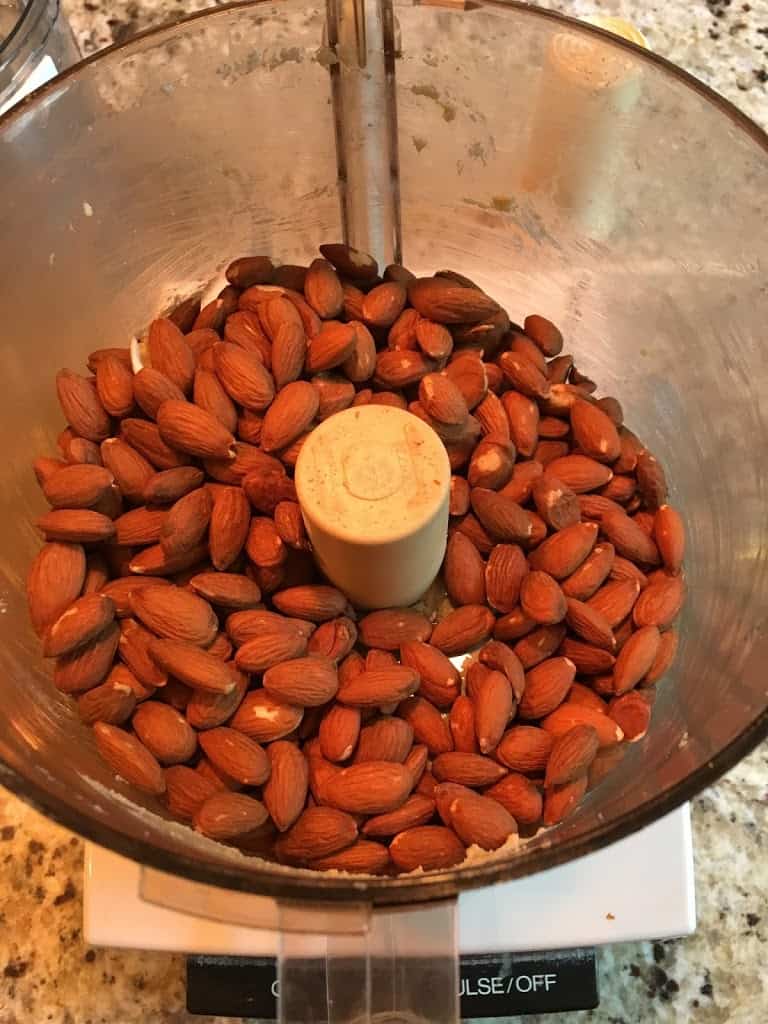
4 Cups of Raw Almonds
After a bit, you’ll see that the nuts are broken down into a nut meal. Put the lid back on and start the processor back up.
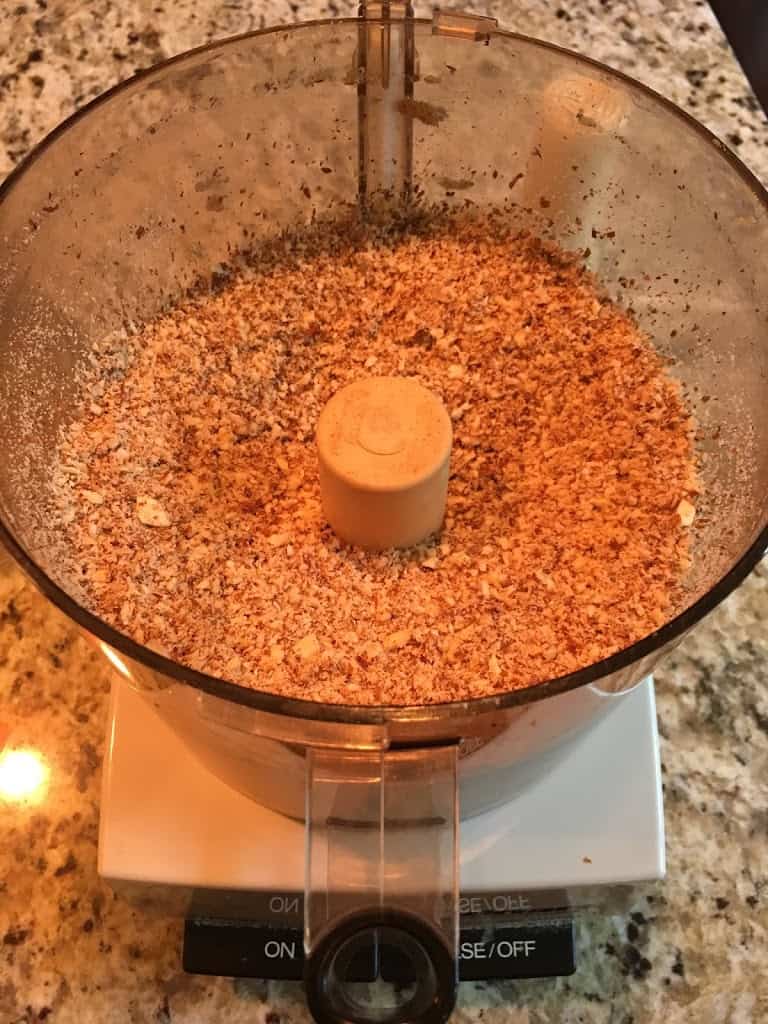
Processed to Nut Meal
Next, you’ll notice that the meal gets finer, more like a flour, and then more “clumpy.” It looks more like damp sawdust. Put the lid back on and start the processor back up.
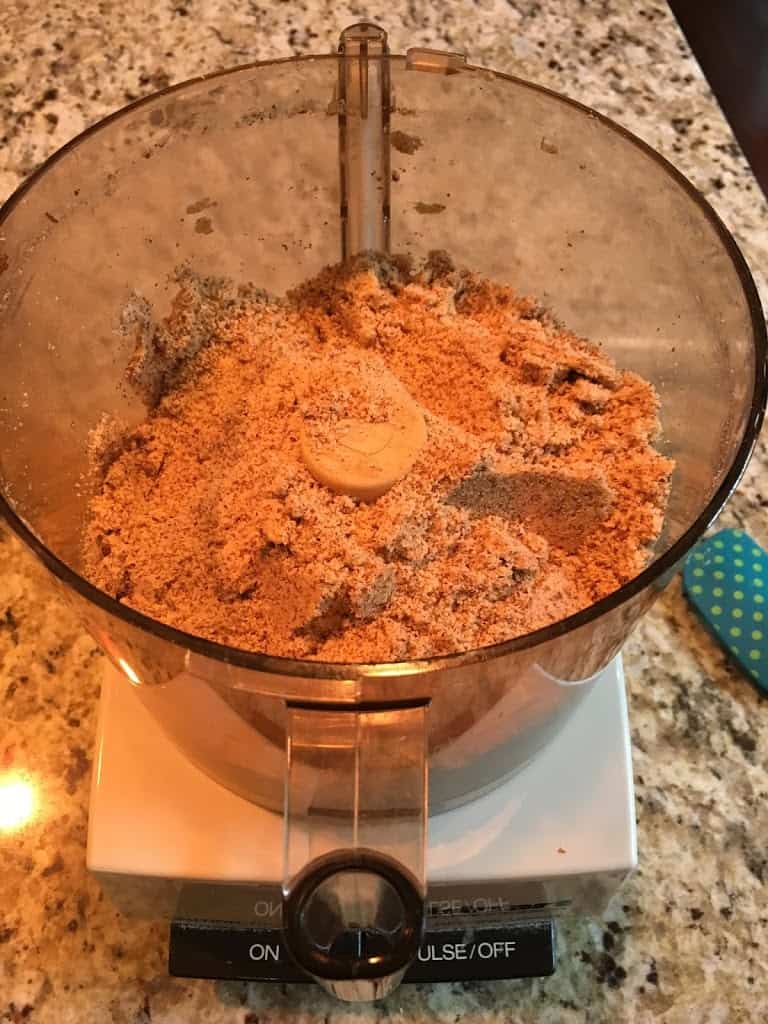
Processed to Flour Stage
At the next stage, you’ll see the flour start lining the sides of the processor bowl and pushing up in sheets before hitting the lid and falling back down into the blades. Let it go for a bit and then open the lid to run a spatula around the sides to knock the flour back into the bowl. You may have to do this a few times. The mixture is clumpier now. Start the processor back up.
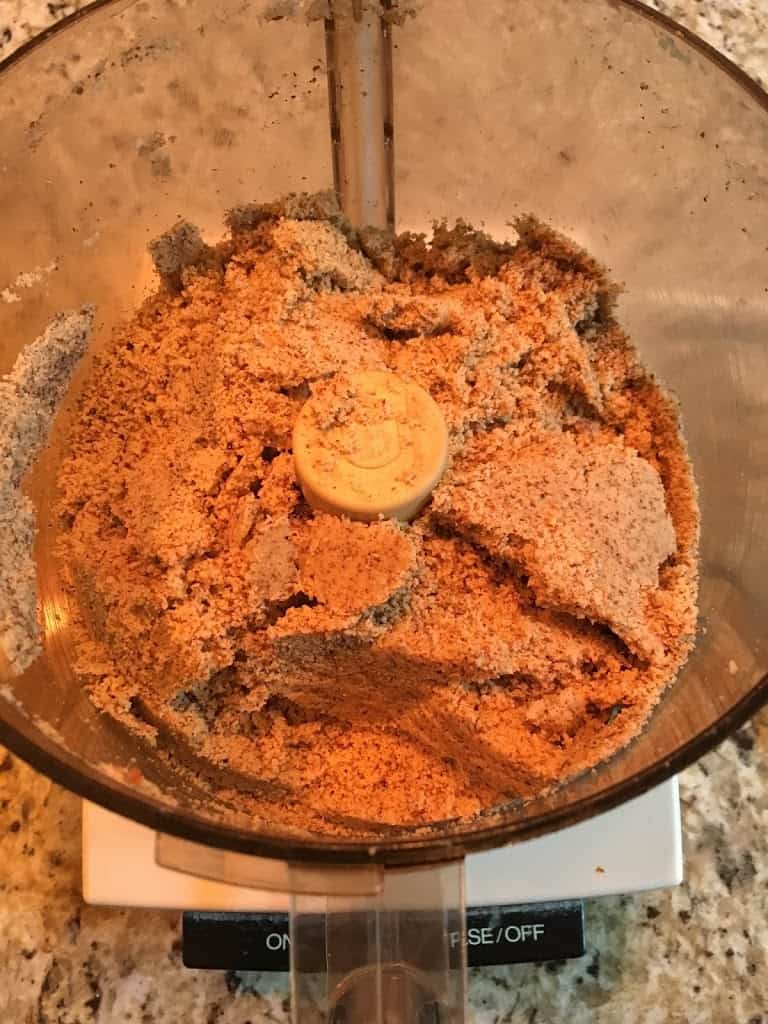
Scraped Sides of Bowl
After a bit, the mixture suddenly changes into small clumps! Stop occasionally to scrape the sides.
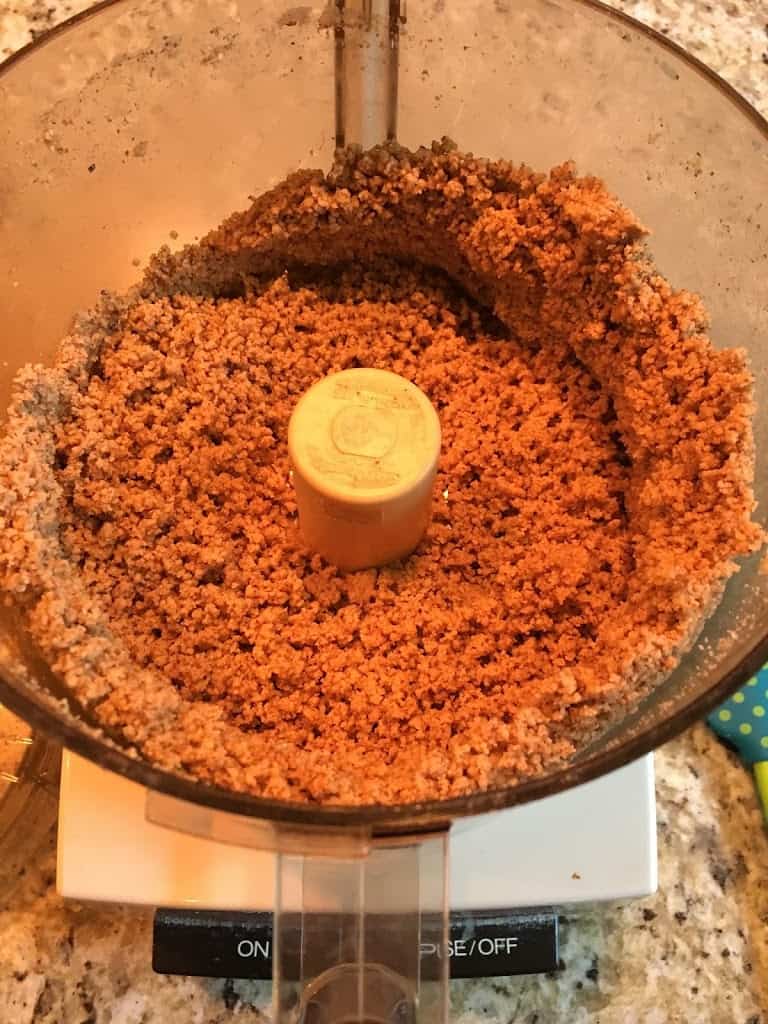
Clumping Almond Flour
At this point, the mixture starts acting a bit strange and you think it’ll never turn into butter, that you’ve done something wrong. Don’t worry, just keep the processor going.

Dough-like Consistency
The mixture will clump up and look like a clump of cookie dough and run around and around the center like that for a while. Then it will break up and be all granulated looking before clumping back into a dough. It does this over and over again until…
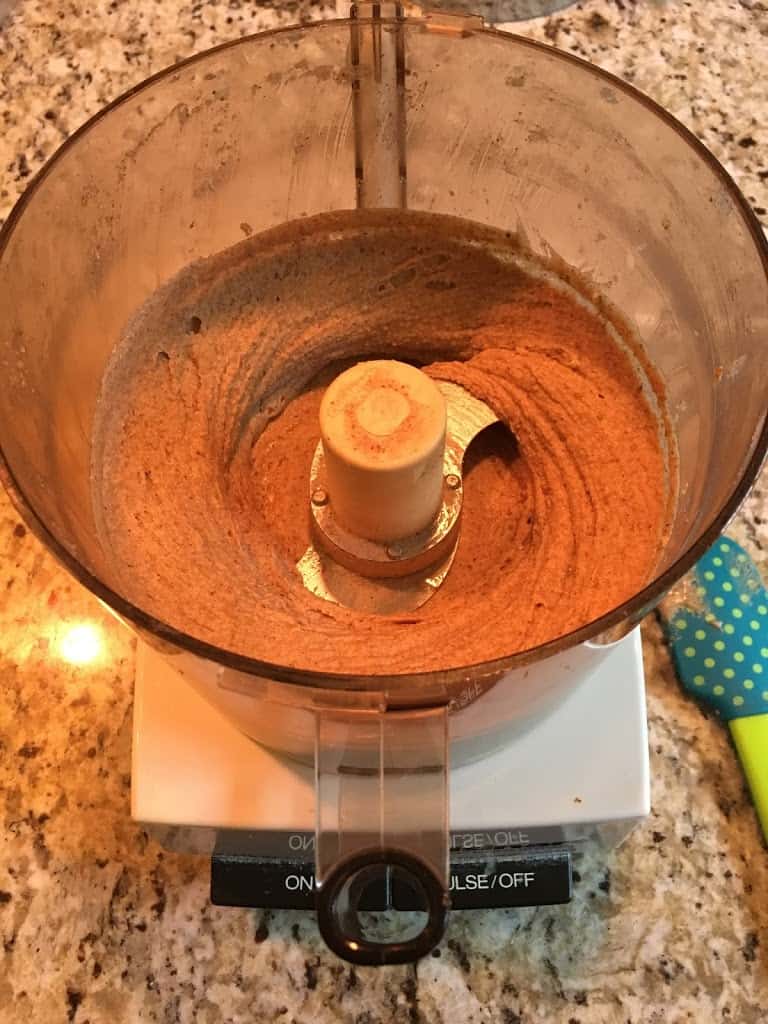
Almond Butter!
It simply smooths out into butter!
No oil, no water, just nuts!
It takes only about 10 minutes for the whole process!
Step Three – Fill Your Jar!
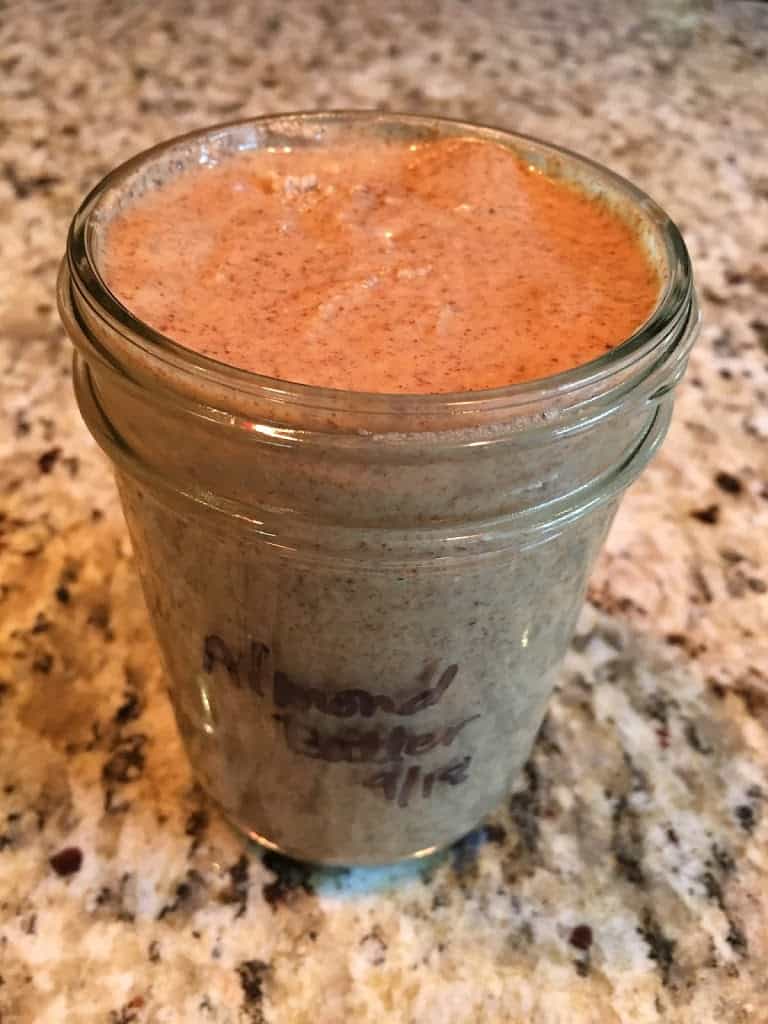
Pint of Almond Butter
That’s it! You’ve just made nut/seed butter! Scrape it out of your processor and into a jar. Tap the jar on the counter to help it settle and you’ll also notice that the top gets a bit more liquid from the oils separating out with the agitation.
Store like you would any other nut butters. You can keep in the cupboard, in the fridge for a longer time, and up to 4 months in the freezer.
The process is the same for any other nut or seed. Sesame seeds make tahini. Experiment with other nuts and seeds and see what you like the best. You can even make coconut butter, which is very expensive to buy, with dried coconut shreds. Try different combinations of nuts and seeds!
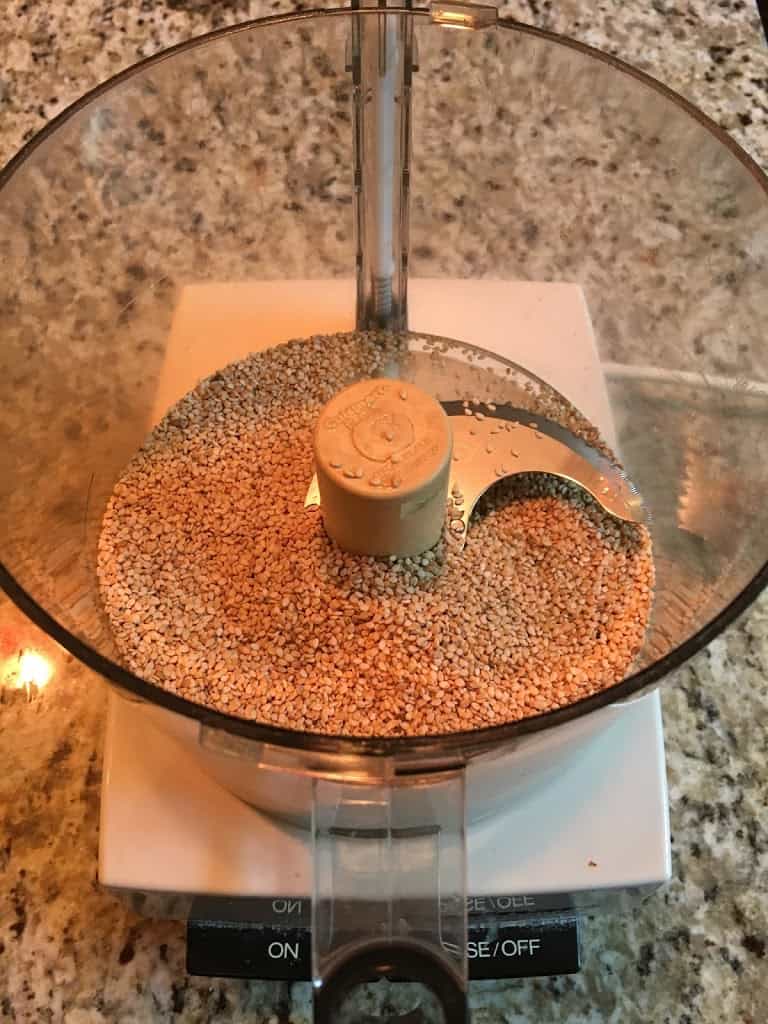
Raw Sesame Seeds for Tahini
I do tend to make sunflower seed butter on days I’m not making any other nut butter. Many people with tree nut allergies can eat sunflower butter. I have a couple of friends with nut allergies and I use the sunflower butter in recipes that call for other nut butters when I’m cooking for them. By making the sunflower butter on different days, I reduce the chance of cross-contamination, making sure the food processor parts and all utensils have been completely cleaned in the dishwasher.
A Note on Nut Butters and Healthy Eating
We don’t eat a lot of nut butters in our house due to the calorie density and affect it can have on triglyceride levels. In fact, Alan had two blood tests a week apart a couple of years ago, one he didn’t eat nut butter beforehand, the other, he ate an apple smothered with almond butter the day before—his triglycerides shot up 20% after eating all that nut butter! His triglycerides fell back down and even lower in blood tests after that and he eats much less nut butter now.
Michael Greger, MD of NutritionFacts.org recently explained the phenomenon of triglyceride response differences when eating whole nuts versus nut butters during an interview on the Physicians Committee for Responsible Medicine podcast, The Exam Room. At about the 19:45 mark of the podcast, Dr. Greger explains that when we chew nuts and seeds, we only chew them into chunks or particles, which trap a lot of the oil (and thus calories) in the pieces. These particles pass through your digestive system and are eliminated intact, with their oil still trapped inside. Therefore your body doesn’t absorb all of the oil in the nut or seed. However, if we blend the nut or seed into butter, the pieces are a thousand times smaller and the oil is released. So when we eat nut butter, the fat is absorbed in our stomachs and intestinal system rather than passing through in the nut particles. In fact, we can see how the oil is released when we make the butter in our food processor. Our teeth cannot grind nuts or seeds into as fine of a butter that the processor takes ten minutes to accomplish. So, while nut butter is a whole, plant-based food, it is one to have sparingly. At least if you make it at home, you know there isn’t added oil on top of the natural oils in your nut and seed butters!
But try it out! I’ll never buy nut or seed butters at the store ever again! It’s easy, fast, fun, and fresh! You’ll be amazed!
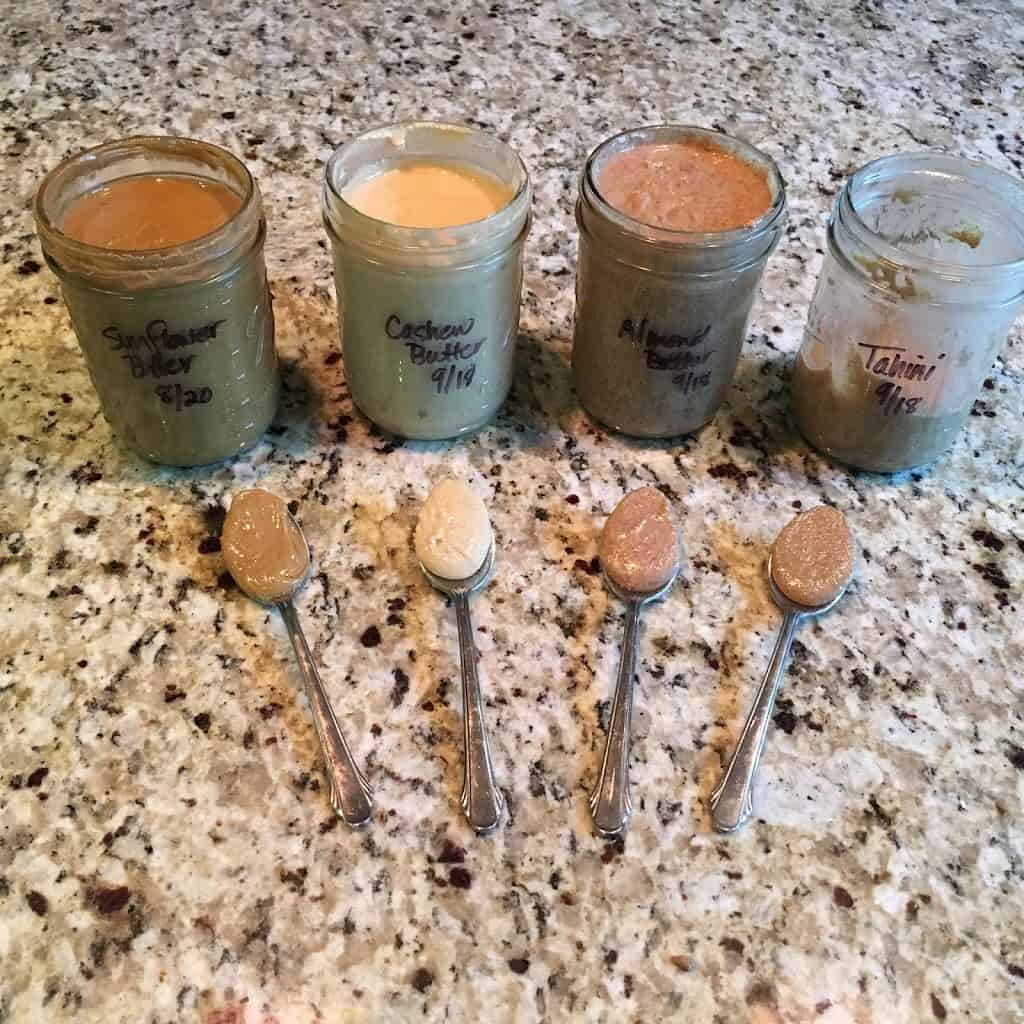
Sunflower Butter, Cashew Butter, Almond Butter, and Sesame Tahini
Nut or Seed Butter
Ingredients
- 4 Cups raw nuts or seeds of choice peanuts, almonds, sunflower, sesame, etc.
Instructions
- Pour the nuts or seeds into your food processor fitted with the metal S-blade. Put on the lid and turn the food processor on and just let it go. Stop occasionally to check and scrap the sides with a rubber scraper.
- After about 5-10 minutes the nuts or seeds blend into a smooth nut butter. Store in a jar in pantry, refrigerator, or freezer.
Notes
Nutrition
Do you like this post? Please share....
[mashshare]
4 Comments
Leave a Comment
If you liked this post, you might like one of these:
Categories:
Tags:

[Trī-māz-ing]
Cindy wants you to be Trimazing—three times better than amazing! After improving her health and fitness through plant-based nutrition, losing 60 pounds and becoming an adult-onset athlete, she retired from her 20-year firefighting career to help people just like you. She works with people and organizations so they can reach their health and wellness goals.
Cindy Thompson is a national board-certified Health and Wellness Coach, Lifestyle Medicine Coach, Master Vegan Lifestyle Coach and Educator, Fitness Nutrition Specialist, Behavior Change Specialist, and Fit2Thrive Firefighter Peer Fitness Trainer. She is a Food for Life Instructor with the Physicians Committee for Responsible Medicine, Rouxbe Plant-Based Professional, and Harvard Medical School Culinary Coach, teaching people how to prepare delicious, satisfying, and health-promoting meals.
She provides health and lifestyle coaching at Trimazing! Health & Lifestyle Coaching. Cindy can be reached at info@trimazing.com.
Subscribe to the Trimazing Blog
Receive occasional blog posts in your email inbox.
Subscribe to the Trimazing Blog
Receive occasional blog posts in your email inbox.

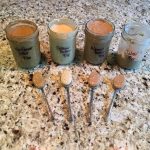








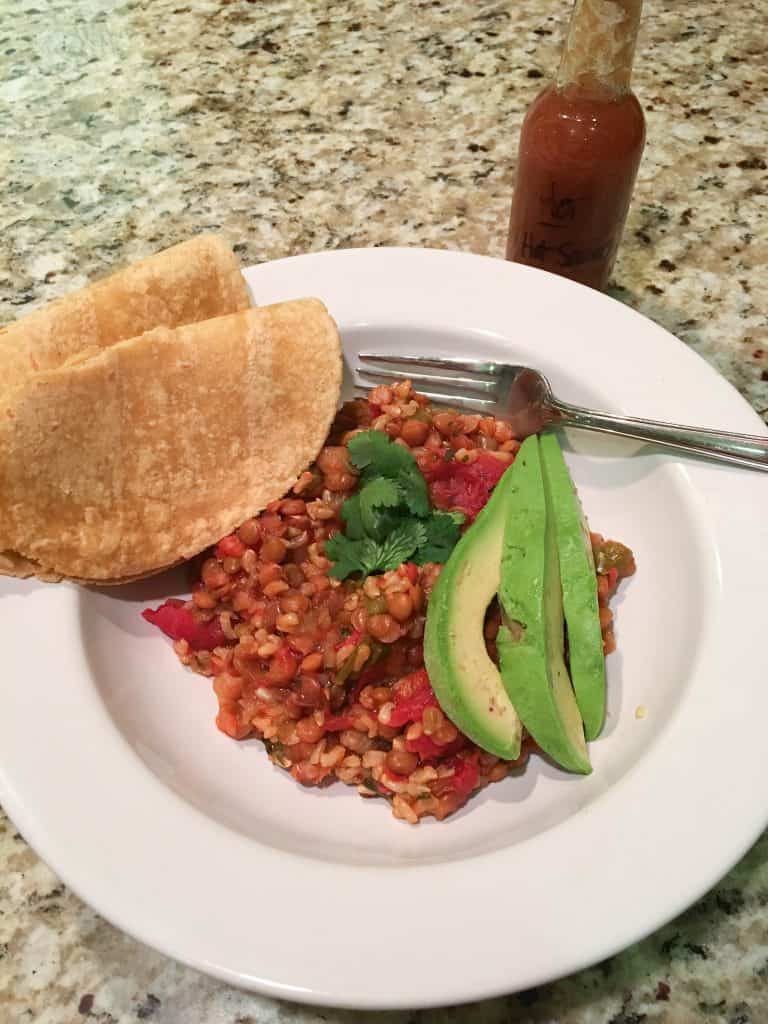

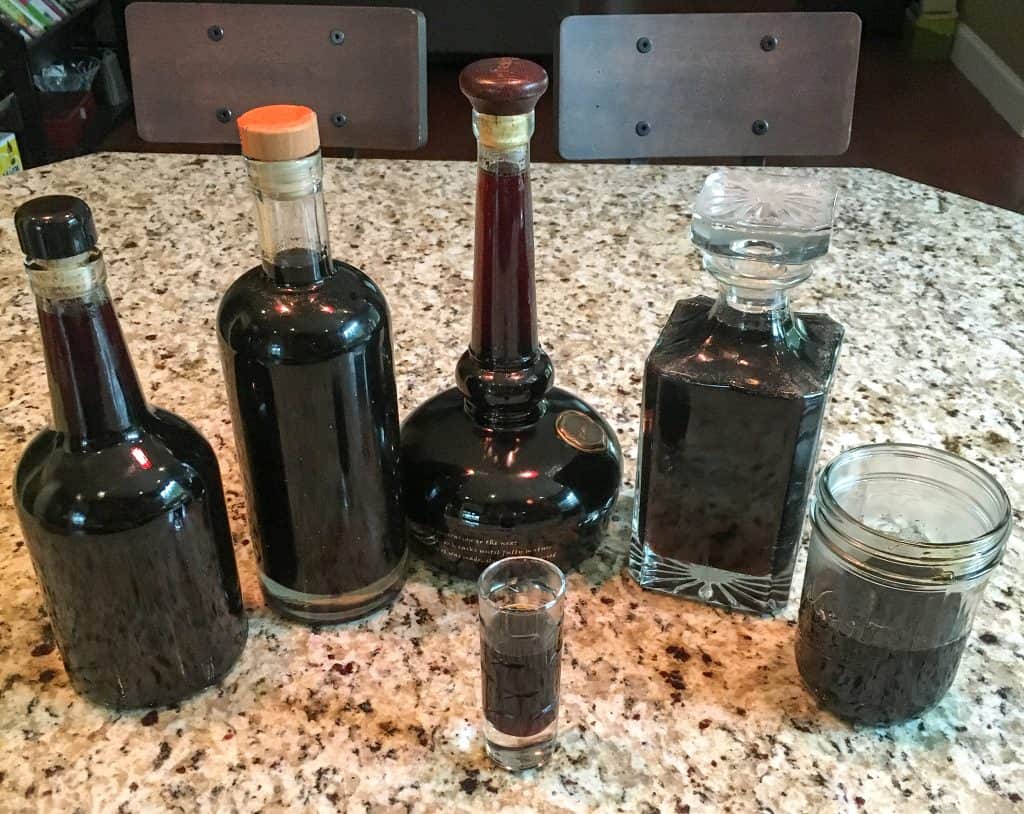


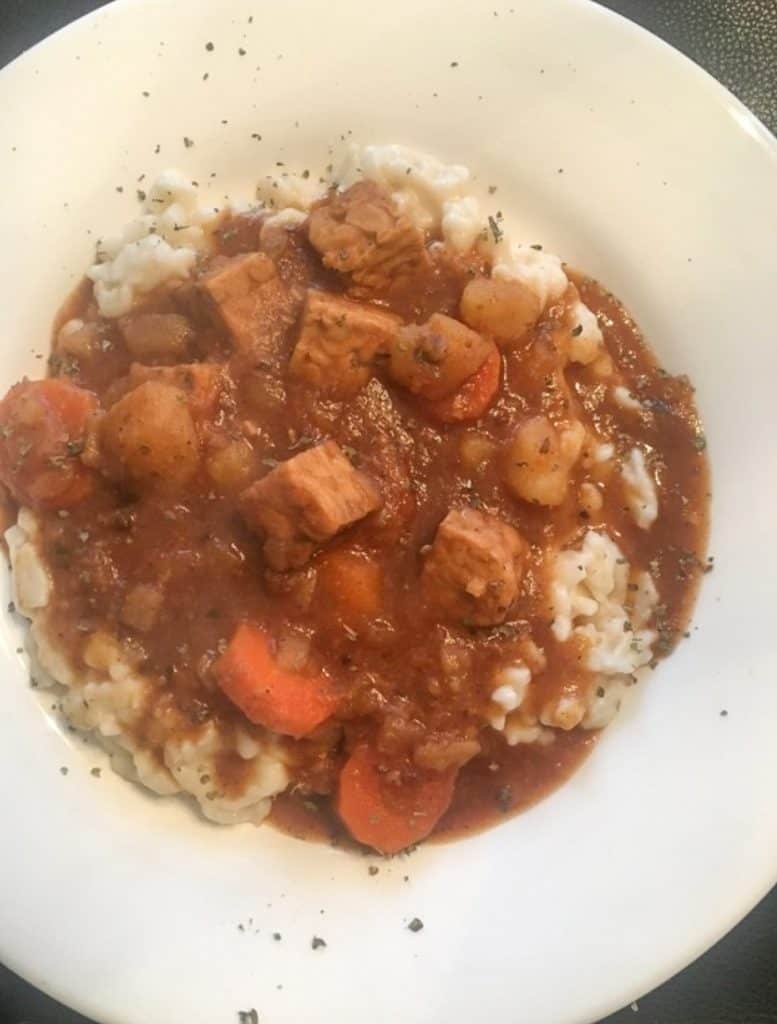

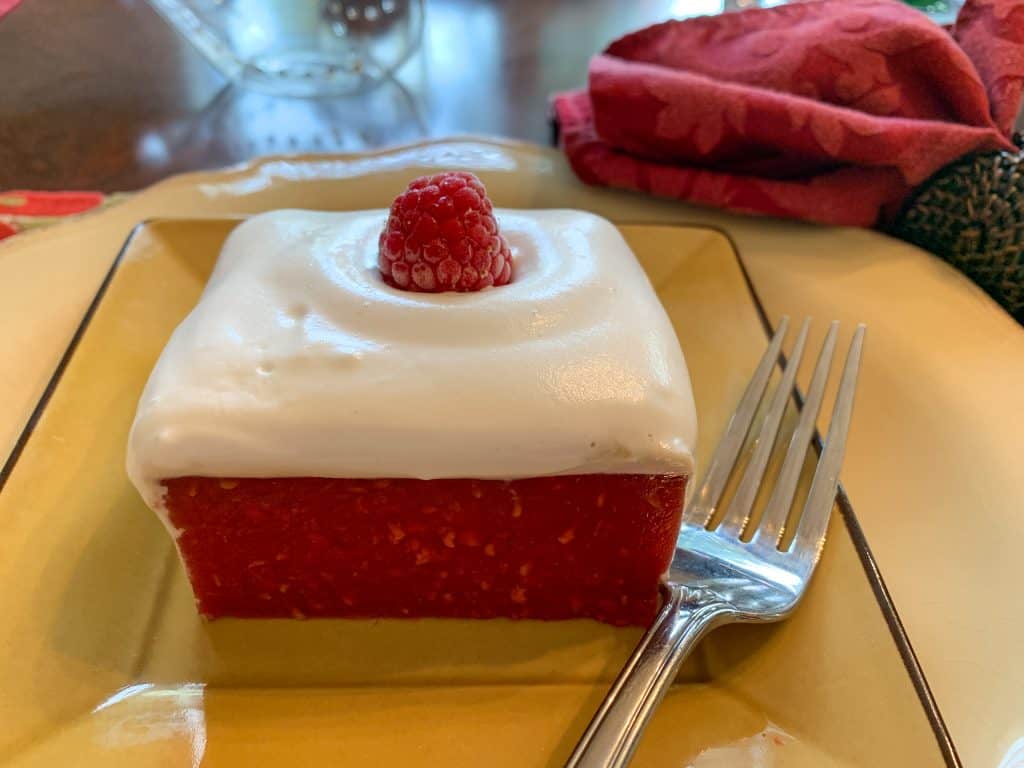

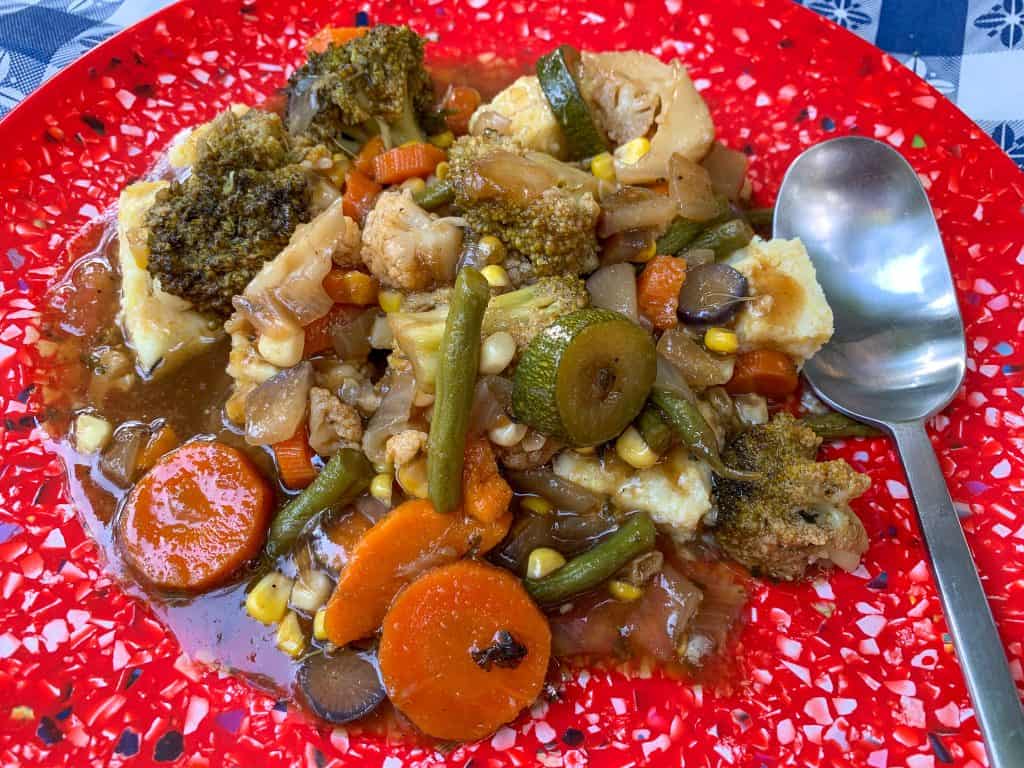


Ah, making nut butter is one of my dreams! Unfortunately we only have a really terrible blender – it can barely manage hummus, nevermind anything more difficult to break down. One day I'll have an amazing food processor and make my own!
Will try to make some nut and seed butters. Thanks for the detailed instructions.
You’re welcome! I’m so glad it was helpful.
Bummer! Definitely try it when you get that food processor–it's so easy to do!